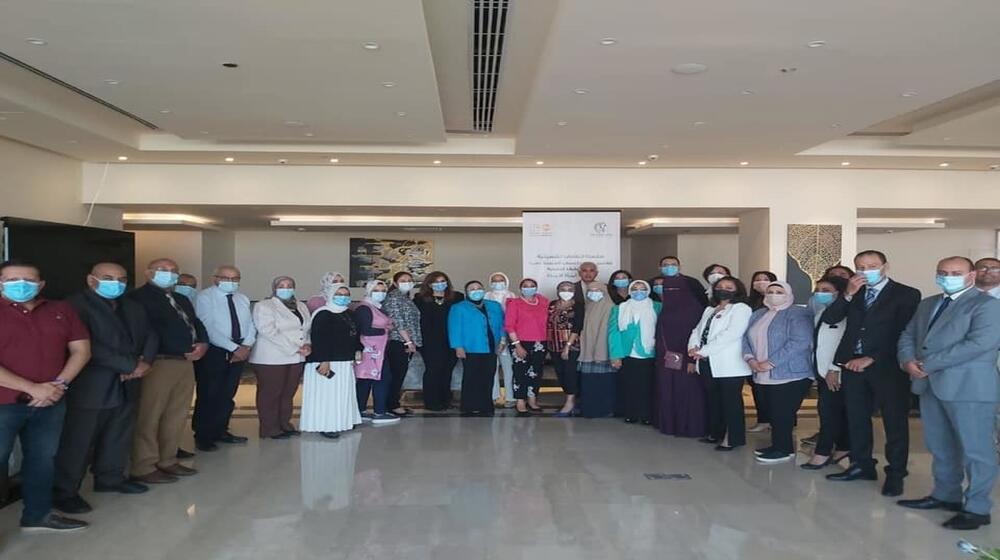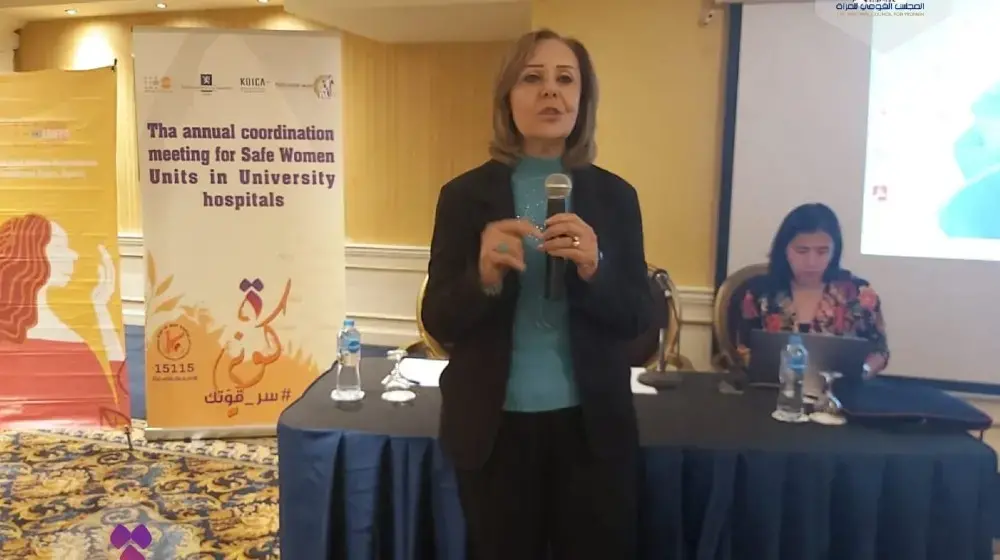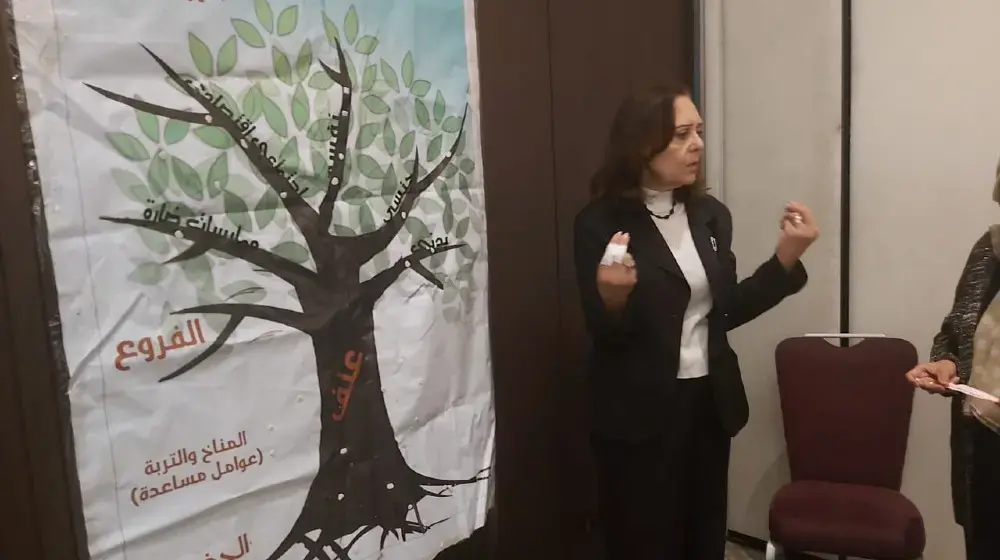UNFPA and the National Council for Women (NCW) held the first coordination meeting for the Safe Women clinics, bringing together doctors, forensic pathologists, nurses as well as representatives from the Ministry of Interior’s human rights and women and child units.
The two-day meeting was organized by NCW’s Anti-Violence against Women Unit, in cooperation with the Mansoura, Cairo, Ain Shams and Assiut university hospitals.
The Safe Women clinics are medical response clinics offering comprehensive services for women subjected to violence. Since late 2020, four clinics were inaugurated at the Mansoura, Cairo, Ain Shams and Assiut university hospitals.
The coordination meeting tackled the role of the health sector in providing high quality medical services to women subjected to violence, and highlighted the need for coordination with the legal sector for following the national referral pathway among the main sectors that provide services to women subjected to violence.
Participants relayed their different experiences at the Safe Women clinics, and the challenges facing health service providers in terms of coordination with the legal and security sectors.
Mona Al-Ghazali, coordinator of the Anti-Violence Against Women Unit, explained that one of the main components of the Essential Services Package (ESP) for women and the referral pathway is coordination between service providers in the health, legal and social sectors.
The first of its kind, the referral pathway was developed under the (ESP joint-program in Egypt in 2019, coordinated by UNFPA. The ESP modules were adapted to national context and endorsed by relevant ministries and key UN agencies (UNDP, UNODC, WHO and UN Women), to coordinate between relevant stakeholders on protection, prevention and care in the legal, social and medical sectors.
The meeting sessions focused on the role of NCW’s complaints office, the role of the police in combating violence against women, as well as the legal sector’s role in handling cases of violence.
Several recommendations resulted from the workshop, including the need for more psychiatrists at the Safe Women clinics, and the need to activate the internal referral pathway in hospitals to raise community awareness around the Safe Women clinics’ services.





